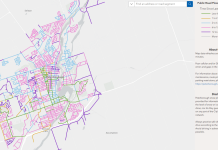To contract new debts is not the way to pay old ones. – George Washington
We’re obviously in an unprecedented crisis right with the COVID-19 pandemic. Canadians haven’t experienced anything like this in generations.
Schools and businesses are closed, services are shut down, and our already stressed hospitals are being stretched to the limit. People — especially those who have lost their jobs or are self-employed — are worried about how they are going to pay for their rent, their loans, and their groceries.
The good news is that Canadians of all stripes have stepped up. Our dedicated healthcare workers and first responders are on the front lines, helping those who are suffering from the illness, and at the risk of their own well-being. Businesses and organizations both large and small are producing or donating much-needed equipment to hospitals. People who themselves may be struggling are donating supplies to food banks to help those who are the least fortunate, or helping their neighbours find essential items in short supply.
The federal and provincial governments have all shown strong leadership by providing financial relief for Canadians, from cutting hydro rates to providing funding for those suffering a loss of income. Municipal governments are deferring property tax payments while maintaining essential services like fire, police, water, and waste management. Communities across the country are pulling together to help us get through this crisis.
And then there are Canada’s big banks.
Just exactly how are the big banks stepping up to help Canadians?
The short answer is (drum roll) … they’re not.
Are they reducing or eliminating interest rates on mortgages, personal loans, or credit cards? Are they waiving interest charges, even for a month or two? Are they even offering new interest-free loans? No.
Could they afford to do any or all of this?
Judge for yourself. In total, Canada’s five biggest banks — RBC, CIBC, BMO, Scotiabank, and TD Bank — made a collective profit of almost $12 billion in the quarter ending January 31, 2020. That’s $12 billion in three months alone, or $4 billion in profit every month. Here’s the profit breakdown for each of the big banks for the last quarter: RBC made $3.5 billion, TD Bank made $3 billion, Scotiabank made $2.3 billion, BMO made $1.6 billion, and CIBC made $1.2 billion.
So, while continuing to post immense profits, how have Canada’s big banks responded to the COVID-19 hardships of Canadians?
At first, they didn’t. They were completely silent. Crickets. Only after federal finance minister Bill Morneau asked the heads of the banks to allow people to defer mortgage payments for up to six months did they respond.
Then, on March 18th — a full week after the crisis began — the five banks (along with National Bank of Canada) issued a media release with the truthiness headline “Canada’s Six Biggest Banks Take Decisive Action To Help Customers Impacted by COVID-19”.
That sounds promising. But what is this “decisive action” exactly? To determine this, I’ve looked at the COVID-19 pages on the websites of each of Canada’s five biggest banks.
Essentially, banks are allowing you to defer by at least one month the required payments on any money you’ve borrowed from them. Some banks, such as BMO, will allow you to defer six months of payments.
That doesn’t sound so bad. You don’t have to make a credit card payment, or a car loan payment, or a mortgage payment. You can use that money to pay for your electricity bill, your internet bill, or your groceries.
But on closer examination, it’s not generous at all. You’ll continue to pay the interest on any deferred payments, you’ll have to pay banks the interest you owe after the deferral period, and the deferred payments will be added back to your principal — effectively extending the term of your loan and increasing the total interest you have to pay. In the end, you’ll actually owe the banks more than if you didn’t defer any payments.
Oh, but if you need to borrow even more money, the banks have your back. They are offering new loans or increasing credit limits to help customers “improve their cash flow”. The banks are offering to help you sink deeper into debt so that, once you are back on your feet, you’ll owe them even more money.
Think about this for a minute. Many Canadians have stopped receiving paycheques. Small business revenues have dried up. That money isn’t just “deferred” until the crisis has passed — it isn’t coming in at all. But the banks don’t care. They are going to get what you owe them. It might just take a little longer and, in exchange for their generosity, you’ll end up even paying them even more.
Remember the financial crisis of 2008? While Canada’s banking system was considered sound and didn’t require the taxpayer-funded bailout that happened in the U.S., Canada’s big banks did in fact receive public funding. According to a 2012 report from the Canadian Centre for Policy Alternatives, that amount could have been as high as $114 billion. There’s some dispute about the actual amount, but there’s no dispute the banks did receive some funding from Canadian taxpayers during the 2008 financial crisis.
And now, during the COVID-19 crisis of 2020, during our own time of dire financial need, the best the banks can do for Canadians is to make them pay more, but later? That’s like a loan shark agreeing not to break your leg this month, but only if he can break both your legs next month.
Think about this for a minute. As part of its COVID-19 response, the federal government is offering the new Canada Emergency Response Benefit (this replaces the previously announced Emergency Care Benefit and the Emergency Support Benefit). It will provide a taxable benefit of $2,000 a month for up to four months for Canadians who have lost their income due to the impacts of COVID-19.
And where is a substantial portion of that taxpayer-funded benefit going to go? To the big banks, of course, as people make payments on their credit cards, mortgages, car loans, and credit lines. Even if you defer a bank payment for a month or two, eventually some of these tax dollars will end up in the coffers of the big banks, helping them maintain or even increase their already huge profits. Our tax dollars will be going to five banks that are collectively raking in $4 billion in profit each month.
If that doesn’t infuriate you, I don’t know what will.
Unlike the rest of us, the big banks are not sacrificing anything during the COVID-19 crisis. We are taking a double hit: first from the loss of income due to COVID-19 and eventually by having to pay taxes to the government to help pay for the COVID-19 relief package that will help us out now. And remember, the Canada Emergency Response Benefit itself is a taxable benefit, so you’ll be paying taxes on that too.
But the banks aren’t taking a hit at all. It’s business as usual for the banks. Instead of reducing their profits to help Canadians get by during the pandemic, the banks are actually going to increase their profits when customers have to pay additional interest from deferred loan payments.
Even if you accept that the banks are doing all they can do, or that deferring payments with no interest relief is an acceptable response from the banks, then just try to get that promised relief.
In order to apply for relief, many banks are doing it on a “case by case” basis. You have to call your bank’s toll-free line, or fill out an online form, or make an appointment so you can present your case for “financial hardship.” Just try to reach your bank to beg for relief: every one of the big bank’s websites has a message about “an extremely high volume of calls” or “unprecedented call volumes”.
If you do finally get through to your bank and have the chance to make your case, there’s no guarantee your bank will actually give you the requested relief.
Of course, nothing is ever black and white. Many Canadians have investments in the big banks, and higher profits mean higher dividends to feather the nest egg. Banks also employ thousands of people, and asking banks to reduce their profits may threaten jobs. At least these are the types of arguments you can expect the banks to make. We heard them all before when banks were gouging their customers with service fees, and it didn’t prevent them from closing local branches in communities across Canada.
And, were it even possible for the federal government to force the banks to do something more substantial to help Canadians, it would undoubtedly throw free-market economists into a sky-is-falling financial frenzy.
But this is all beside the point. The sky has already fallen for the average Canadian. We are all making very real sacrifices right now.
It’s time Canada’s big banks finally stepped up and did the same, by providing real relief for their customers.
This opinion piece does not necessarily reflect the views of kawarthaNOW or its sponsors or advertisers.



























